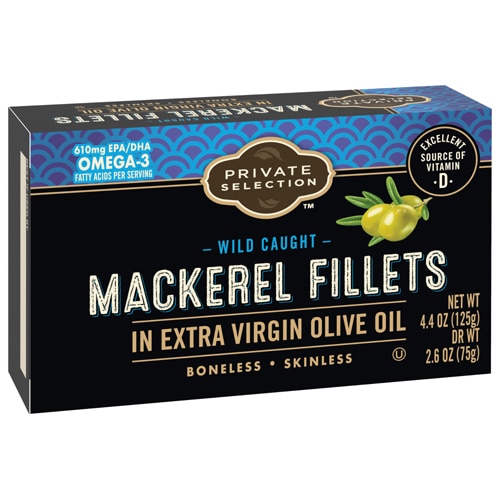[vc_row][vc_column][vc_column_text]When you think about asthma, you may think of things like inhalers and difficulty breathing. What you probably don’t think about is food. Yet there are both foods that trigger asthma as well as foods that can help asthma.
Unfortunately, over
26 million Americans suffer from asthma, which is about 1 in every 13 people. So, knowing more about the link between food and asthma is especially helpful when it comes to helping treat and even prevent asthma attacks. Here’s more about asthma nutrition, including the best and worst foods for asthma.

Foods That Trigger Asthma & Foods That May Help
Foods that may help with asthma
While things like inhalers and other medications are a crucial part of asthma treatment,
food can be an additional form of asthma support, and one that is both natural and convenient. Many foods have been found to
influence the severity of asthma.
Here are some of the best foods for asthma:
There are many reasons why
research has shown that colorful fruits and vegetables both help to reduce the risk of developing asthma, as well as make its symptoms – such as wheezing – more manageable. For one, fruits and vegetables are rich in
antioxidants like vitamin C, E, and
beta-carotene. Antioxidants may help reduce
inflammation in the airways and improve overall lung function. Fruits and vegetables also provide a good source of
fiber, which has also been linked to improved lung function. This research showed that eating even just one serving of fruit per day, or one-half cup of fruits and vegetables each, can improve many aspects of asthma.
Like fruits and vegetables, whole grains provide a great source of fiber as well as some antioxidants like
vitamin E. Eating whole grains is associated with reduced blood levels of the inflammatory marker C-reactive protein. In addition, the fiber in whole grains positively affects your body’s gut
microbiome, which may in turn benefit other areas of your body including improving lung health.
- Foods rich in omega-3 fatty acids
A
6-month study found that children who ate more
omega-3 fats in their diets experienced fewer asthma symptoms triggered by indoor air pollution. These healthy fats help reduce inflammation in your body, including in your lungs and other airways, and are associated with better overall asthma control. The best
food sources of omega-3 fats include fatty
fish,
walnuts,
cod liver oil and seeds like
hemp,
chia and
flaxseeds.
Amongst vitamin D’s many functions include helping boost your immune system responses and reducing airway inflammation. Low levels of vitamin D may increase the risk of asthma attacks in both adults and children. There are only a few foods that naturally provide vitamin D, including fatty fish, egg yolks, and some types of mushrooms. Other foods commonly fortified with vitamin D include orange juice, milk, and many types of cereal.
Because dietary vitamin D is hard to come by,
research has suggested that adults with asthma take a
vitamin D supplement. It states that this additional vitamin D may help reduce asthma severity and the need for steroid treatments.
Food that may trigger asthma
On the flipside, some foods can make the symptoms of asthma worse.
Here are some of the worst foods for asthma:
While low fat dairy products have many health benefits, they aren’t favorable for people with asthma. The reasons why dairy can trigger asthma is not completely clear, but many studies have found a correlation between higher intakes of dairy and worse asthma symptoms.
Research has stated that removing cow milk from the diet could be a missing link in current asthma treatment, particularly for children. So choosing non-dairy alternatives like
plant-based milks and yogurts is likely a better choice, especially surrounding asthma attacks.
Foods that lead to gas or bloating often increase pressure in your chest and lung area. This can make
breathing more difficult, worsening asthma symptoms. Examples of common gas-producing foods include
beans, fried foods, garlic and onions. Carbonated drinks are also common triggers.
Sulfites are food chemicals that are often used as a preservative. They have been known to worsen asthma symptoms for some people, and are found in foods and beverages like wine,
dried fruit and pickled foods.
Salicylates are another type of food chemical. While a sensitivity to them is rare, people who are sensitive to them may experience asthma as a symptom. Salicylates are found in certain types of fruits, vegetables, beans, herbs and spices. Because these foods are otherwise very nutritious, it is only necessary to limit them if you are truly sensitive to them.
- Foods high in omega-6 fats
Unlike omega-3 fats, omega 6 fats can promote inflammation in your body. Because asthma is already an
inflammatory disease, anything that can increase inflammation is likely to make its symptoms and severity worse. One study found that children who consumed more omega 6 fats had more severe asthma symptoms in response to indoor air pollution, while those who ate more anti-inflammatory omega 3 fats had less severe symptoms.
Not all foods high in omega 6 fats are unhealthy, but it’s important to make sure you’re consuming a balance between omega-6 and omega-3 fats. Omega-6 fats are found in many nuts and seeds as well as vegetable oils and processed foods that are cooked in them.
Overall,
research has reported that a Western diet that is high in animal products and processed foods contributes to more severe asthma, while
Mediterranean diets and those that are rich in plants are linked to reduced asthma symptoms. In addition, consuming foods closest to their natural state and free from food additives is best not only for people with asthma, but for the general population as well.
In summary
Food can play an important role in treating asthma. Foods that are rich in vitamins, antioxidants and omega 3 fats can help lessen inflammation and improve overall breathing pattern. Yet other foods like milk, highly processed foods and foods that cause gas may make asthma symptoms worse. Knowing how your unique body responds to different foods is essential in order to create an eating plan that is best for you.[/vc_column_text][/vc_column][/vc_row][vc_row][vc_column][vc_text_separator title="Featured Products" border_width="2"][vc_row_inner equal_height="yes" content_placement="middle" gap="35"][vc_column_inner width="1/3"][vc_single_image image="175445" img_size="full" alignment="center" onclick="custom_link" img_link_target="_blank" css=".vc_custom_1716913204822{padding-right: 7% !important;padding-left: 7% !important;}" link="https://www.vitacost.com/elmhurst-unsweetened-milked-oat"][/vc_column_inner][vc_column_inner width="1/3"][vc_single_image image="175448" img_size="full" alignment="center" onclick="custom_link" img_link_target="_blank" css=".vc_custom_1716913229899{padding-right: 7% !important;padding-left: 7% !important;}" link="https://www.vitacost.com/tonnino-non-gmo-tuna-fillets-in-olive-oil-yellowfin"][/vc_column_inner][vc_column_inner width="1/3"][vc_single_image image="175447" img_size="full" alignment="center" onclick="custom_link" img_link_target="_blank" css=".vc_custom_1716913257643{padding-right: 7% !important;padding-left: 7% !important;}" link="https://www.vitacost.com/manitoba-harvest-organic-hemp-chia-flax"][/vc_column_inner][/vc_row_inner][/vc_column][/vc_row]




